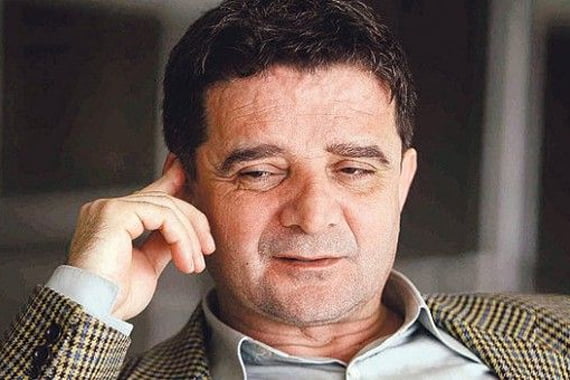Was prime minister able to convince the EU?

Date posted: January 25, 2014
MÜMTAZER TÜRKÖNE
The answer to the question posed in the headline does not matter for the prime minister because his problem will be resolved in the courtrooms of Turkey rather than the back stages of EU institutions. Prime Minister Recep Tayyip Erdoğan makes all of his political reinforcement in the judicial system. He uses all his political power, charisma and charm to block the corruption probes. For this reason, instead of convincing the EU, he tries to secure a temporary peace so that he can finish his job. Unlike the messages he delivers on the domestic stage, he gave assurances over judicial independence to the EU so that he would not be hurt much by this visit.
For this reason, it is natural that what he said on his way back from Brussels on the plane is a message about internal politics. The prime minister said that he explained the parallel structure in Turkey to the EU administrators and that he convinced them. It is possible for Erdoğan to make his own support base believe the legend of “a parallel structure within the state.” But scenarios of generating common enemies that are peculiar to totalitarian regimes do not convince democratic states. The criteria are simple. If there are figures that illegally use powers within the state, you, relying on your legal powers, apprehend and prosecute them. But if you refer to a parallel organization whose acts are not defined as crimes, pro-freedom democracies call it civil society.
The ghost the prime minister described to the journalists is an organization that holds power, threatens all and makes them bow to its wishes and demands. There is no answer to the question as to why they would not expose or destroy it. If this imaginary gang or organization were taken out of the equation, the Justice and Development Party (AK Party) government would no longer have a common enemy that would be useful for blocking the corruption probe. Four members of the government resigned over the bribery charges. The corruption probes directly related to the government were blocked. Court decisions are not followed through in the probe initiated over charges that construction was influenced by bribery in the Istanbul fire department. The government reassigns prosecutors who conduct the investigation or their private lives are exposed in pro-government papers. In reference to a prosecutor, the prime minister argued that he traveled abroad 22 times. It became apparent that this allegation was not true; but the prosecutor was removed from the investigation and reassigned.
But still, it seems that the Brussels visit seems to have opened a new door for the prime minister. It is important that he placed emphasis upon secularism on his way to Turkey. In addition, he also refers to a democratization package that apparently came to his mind at that moment. These two signs show that the prime minister will resort to certain moves in an attempt to address criticisms against him and seek new alliances. Since 2011, the prime minister has lost support among left liberals, right wing liberals and then the center right conservatives. His clash with the Gülen movement in the aftermath of the Gezi protests made him extremely alienated. Alienation is bearable for a party that dominates the entire state system as long as it accepts the accusations of authoritarian rule. However, the corruption probes left the government in a delicate position within the state. Its attempts at making peace with the circles offended by its past actions are products of its current impasse.
Those who thought that the prime minister would make harsh statements in Brussels were proved to be wrong. Like all successful politicians, Erdoğan is a realistic leader. He retreats when he considers it is necessary to do so. For this reason, we may foresee that he might offer peace to Alevis, Kurds and liberal circles to create new alliances vis-à-vis corruption probes. Would this plan work? It is too hard to tell, but there is still little hope as long as you are alive. The prime minister failed to convince the EU; but it seems that he convinced himself by the overall mood he observed.
Source: Todays Zaman , January 25, 2014
Tags: Defamation of Hizmet | Democracy | European Union | Hizmet and politics | Turkey |
























